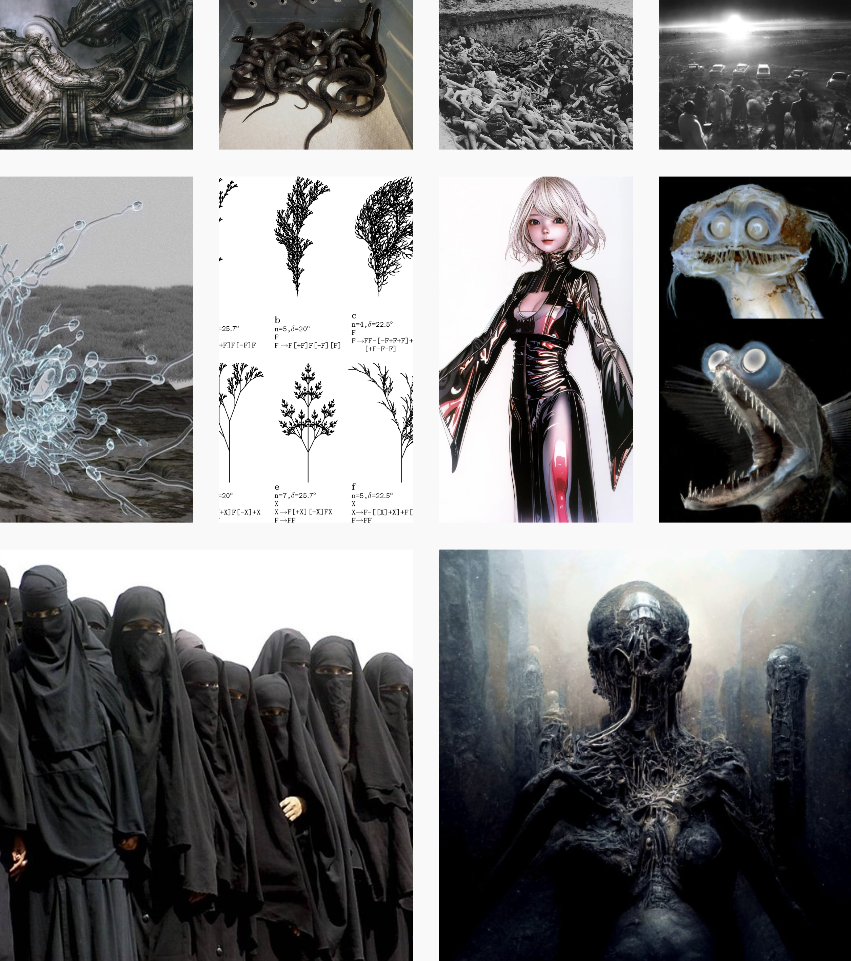A language to shun the neurodiverse.
A while ago, I tried to come up with a concept of a language which the retards won't be able to use. At first glance, it's a simple task. Just cram as much as you can. Make them memorize a billion contradicting grammar rules, stems, affixes. However, it's not what I'm really aiming for. I can't simply make the language *arduous.* This would have very little to do with actual intelligence. This would merely make language acquisition a little bit harder for some and a little bit easier for others. Then, they will use an equally negligible amount of brainpower to recall and spit it out.
No, no. Every natural human language (and those which resemble them) is flawed in its heart for my purpose. Every human language, no matter how difficult, can be acquired by a complete moron. Otherwise, Japan and China wouldn't have a 100% literacy rate. I need something completely alien that's designed in a way that makes it absolutely impossible to use for some but very easy and natural for others, something that isn't based on memorization of patterns.
My first immediate thought was to base the language on math. Here's one way to do it. Each positive integer can be represented as the sum of the powers of 2:
15 =
1*(2^0) + 1*(2^1) + 1*(2^2) + 1*(2^3) =
1*(1) + 1*(2) + 1*(4) + 1*(8) =
1 + 2 + 4 + 8
9 =
1*(2^0) + 0*(2^1) + 0*(2^2) + 1*(2^3) =
1*(1) + 0*(2) + 0*(4) + 1*(8) =
1 + 0 + 0 + 8
6 =
0*(2^0) + 1*(2^1) + 1*(2^2) + 0*(2^3) =
1*(1) + 1*(2) + 1*(4) + 0*(8) =
0 + 2 + 4 + 0
Each such power of 2 can be seen as a flag that can be either on (1) or off (0). My idea was to encode meaning with these flags. Suppose the first 4 flags are 1000, and it means I ask a question, the next 10 flags are 1010101010, and it means I ask a name, and the last 6 flags are 001001, and it means the name I ask is associated with the listener. Thus, to ask "What's your name?" you'd say "595281," which, in this language, could be just a few syllables or symbols.
It's a neat system, because there will be no patterns to memorize: "255" can look and sound completely different from "256" and have a completely different set of enabled and disabled flags, and therefore a completely different meaning. Similarly, close meanings won't necessarily be represented by close numbers or similar sounds and symbols. In order to communicate, you'd have to continuously encode and decode between long sequences of flags with their own unique grammar rules and concisely expressed numbers.
I'm terrible at mental calculation, actually. But that's okay, I thought. I felt capable of becoming good at it. As I was thinking about it, I realized that my system was almost as flawed as any natural language. You see, mental calculation is not some innate ability of a well-developed brain. It's a learned skill. Humans don't *compute* that 8 + 7 = 15 or 6 * 6 = 36. They simply remember it. And more complex calculations are simply sequences of recall. Everything will still be based on memorization, perhaps with some fancy extra steps, an additional layer that will do little except increase learning time.
I still love the idea, but I don't think it's well designed for what I want. I can't base the language on something everyone can learn. Currently, I have no understanding of how to achieve the necessary result. Perhaps it's a foolish thing to try. Perhaps there is no way to achieve it, because what I feel like a huge gap between IQ125 (top 5%) and IQ75 (bottom 5%) individuals is in fact negligible, and both will be seen as imperceptibly different worms by artificial or technologically augmented intelligence.
The "professional" IQ test isn't that good, actually. You can't measure intelligence by evaluating previously learned skills or memorized information. The test checks your knowledge of vocabulary, for example. Obviously, this gives native speakers with specific interests and experience an enormous advantage, regardless of their brainpower.
However, the parts of the test that evaluate so-called "fluid" intelligence are great. For example, Raven's Progressive Matrices—it's usually the only part you see in the small online IQ tests. You aren't taught how to recognize those shape sequences and whatnot in school. More importantly, you can't learn it. Trying to do so will increase your test results only marginally (as far as I know). Since it's not taught and cannot be learned, it really estimates innate brain abilities and not your education or diligence, for example.
You can often see clueless simpletons trying to use previously learned skills or memorized information as a measurement of intelligence: "I am fluent in several languages, which means I am smart," or "You can't quickly subtract 7 from different other numbers, which means you are stupid." In reality, all it shows is whether the person happens to have learned it or not. There would be, of course, some correlation, but such an estimation of intelligence would be wildly inaccurate.
Maybe the language I seek should be based on the fluid-intelligence parts of IQ tests somehow. Think about it: it's absolutely impossible to get 50% of the correct answers for some but very easy and natural for others.
Another pristine sign of intelligence is a sense of beauty. No one teaches you in school what constitutes an aesthetic masterpiece or a hideous abomination. And it's not something you can learn easily, I believe. And so people are just naturally drawn to things beautiful and ugly.
It's still controversial though. On the one hand, I find this ability important. There was a girl, who might have liked me, but whom I wasn't really into for several reasons. One substantial reason was her aesthetic sense, or the lack of one. She was bright on paper, but on the social media she shared photos so unintentionally bad she seemed borderline mentally ill. (And it wasn't the "I have schizophrenia and make the most unearthly music" kind of ill. It was the "I have no understanding if feces are good for food" kind of ill.) On the other hand, I practice humility. I used to think: "Wouldn't it be nice if those who inherit our Solar System will understand and value beauty—in symmetry, fractals, order, balance? In trees and mountains, in nebulae and galaxies? Wouldn't it be sad if they won't?" Now I think it was naive and arrogant. Beauty is a byproduct of our rudimentary biology and experience. Basically, it's our bodies saying, "Yes, this is healthy," or "Yes, this doesn't strain my eyes," or "Yes, this strikes a good balance between familiarity and novelty, between risk and reward."
Every creature has its preferred stimuli. For all intents and purposes, we can say they have their own sense of beauty. We can imagine cats thinking of us, "These hoomans seem to be pretty advanced—worthy successors of our rule over this planet if we were to go extinct. It's just so sad they don't seem to have any understanding of aesthetics. They don't appreciate confined spaces, the touch of cardboard on fur, the scent of valerian root and mouse meat, the just-right amount of darkness of the starry night, the masterfully performed purr." Silly, isn't it? Species far more intelligent than us may find our sense of beauty primitive and unnecessary, and that's fine.



